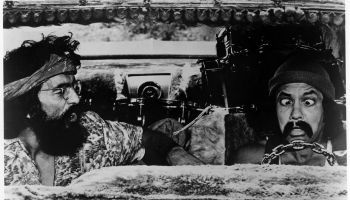As I watched Rachel Jeantel testify to a hostile Don West, I was squirming.
I couldn’t believe that she was so visibly annoyed when she was asked to return the next day, so much so, the judge intervened. I had trouble parsing the important, emotional statements, from the grumbles about dates and logistics. I wanted to understand what she was saying and interpret how it could be used to Trayvon’s defense and Zimmerman’s detriment.
I really wanted to like her, but she was making it difficult.
Upon reading Christina Coleman’s blog Why Black People Understand Rachel Jeantel, I was struck that she felt such a connection to Rachel. I could not comprehend how she felt she had the authority to defend Rachel, citing a mutual understanding, history and experience as a basis for her post.
As far as I know, Coleman has nothing in common with the nineteen-year-old aside from the color of her skin.
The history of disenfranchisement and social exile that characterized the black experience in America is powerful, but could it trump so many other factors that make up an individual like education, family history, socioeconomic status, and occupation? How could their experiences in this country be similar when they seem so different?
I turned inward to try and figure out if I would feel such a kinship with a white girl should she be in Rachel’s position, where she was under scrutiny and judgment. If I had nothing in common with her except similar shade skin, I’m not sure I would identify with her, especially not with enough conviction to insist someone of a different color skin could never understand her. If the basis of identification is a shared history, I’d need more than skin color to relate.
I know I am, as Coleman put it, “worlds apart” from Rachel, but I would feel similarly distant from a lighter-skinned girl of Rachel’s education level, geographic location, and socioeconomic status.
If this trial has forced us to contemplate anything, I think it is the unique role race plays in America. I am not advocating for color blindness. It is important to acknowledge our history of systematic racial injustice so we can learn from it and move forward, taking care to rectify past mistakes.
However, we need to rethink how much race should dictate individual’s lives. Perhaps, instead of uniting and dividing based on race, we should accept that we are all connected by our belonging in this country. Whether in New York or Florida, we pledge allegiance to the same flag, are subject to the same laws, and pay the same taxes.
Maybe that sounds utopian and the reality is that racism has woven itself so deep into the fabric of Americans that black and white people will never be treated equally, whether it’s in an admissions department at a college, through the airport, or just walking down the street in a hoodie. But we have to try.
Rachel Jeantel has challenged everyone who was watching her respond to question after question. She has become the face of a population of America that we like to ignore.
Even if I can’t connect with her, I thank her for courageously appearing in court and shedding light on that fateful February night, as well as on the fragile and confusing state of race relations in the U.S. I hope that her muffled voice permeates the surface of every American and makes us rethink who we are as a colorful nation and what our future is going to look like.
Sophie Jacob is a News and Politics Intern at GlobalGrind and a rising sophomore at Northwestern University.















